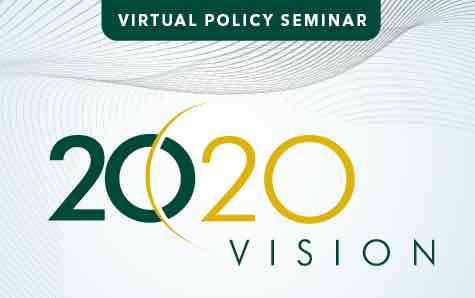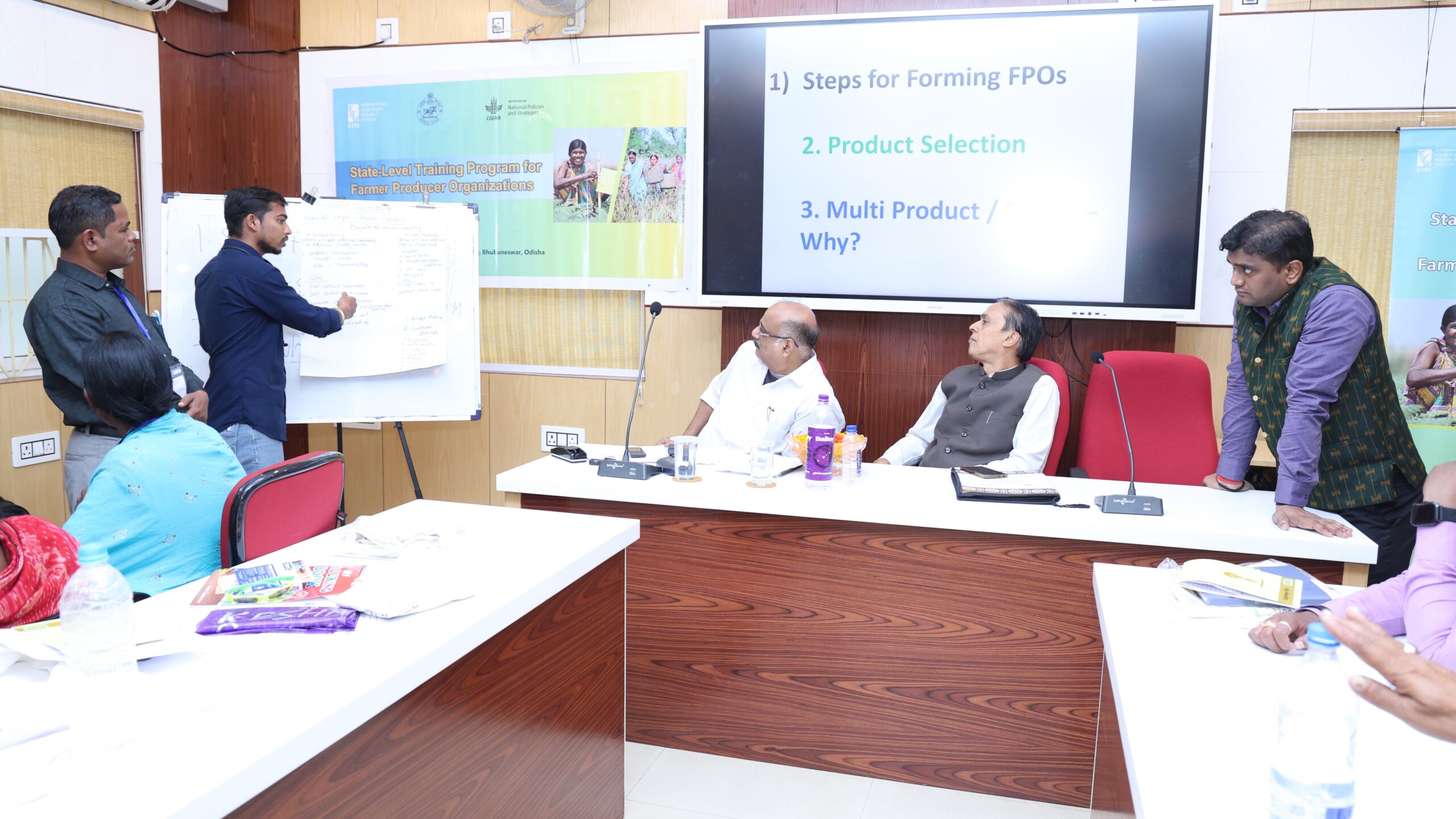Launched in 1993 and recently concluded, IFPRI’s 2020 Vision Initiative was an ongoing series of food policy conferences, discussions, and related efforts that envisioned a world with no hunger or malnutrition, where food systems provide sufficient and healthy diets for all while managing natural resources sustainably. A July 8 virtual event reflected on the initiative’s accomplishments, as well as emerging challenges and opportunities for improving food and nutrition security, reducing poverty, and protecting the environment.
“I believe that together we have pushed the frontier of food policy dialogues to support real actions on a number of development challenges,” said Rajul Pandya-Lorch, IFPRI’s former Director of Communications and Public Affairs, who spearheaded the 2020 Vision Initiative for more than 15 years. IFPRI greatly expanded the initiative since its conception by facilitating inclusive debates and conversations, transforming communications methods from traditional media to social media, and investing in impact evaluation to better understand the program’s influence upon communities.
“The 2020 Vision Initiative was about policy communication and food policy dialogue to support actions that were based on relevant and solid evidence,” said Cornell University Professor Emeritus Per Pinstrup-Andersen, who created the program during his tenure heading IFPRI. “On the flip side, we were also trying to counter misinformation disseminated by advocacy groups that misled policy actions to the detriment of food insecure people and the environment,” he added.
Pinstrup-Andersen highlighted key characteristics that made it a pioneering program:
- Targeting food system decision makers by making IFPRI research more accessible, including developing press briefings.
- Involving policy makers and advisors in setting research priorities to address their countries’ needs.
- Establishing a presence in international food policy debates to promote IFPRI and its outputs.
The panelists, all former IFPRI Directors General, then discussed several 2020 Conferences and their contributions in reducing hunger and poverty.
In 2004, IFPRI hosted its 2020 Africa Conference in Kampala, Uganda and invited over 300 politicians, business people, academics, and NGO representatives, cultivating great enthusiasm and commitment from African leaders and the general population. The conference sparked and sustained continuing food policy conversations. The Malabo Montpellier Panel case studies have shown at least a dozen African countries making significant progress in nutrition, energy, irrigation, and other areas. “That is very much in the spirit of the 2020 Initiative: Learn from good examples, move forward, overcome depression, and thereby have policy impact,” said Joachim von Braun, now Director of the Department for Economic and Technological Change at the Center for Development Research at the University of Bonn.
The 2020 Conference on Building Resilience for Food and Nutrition Security, hosted in Addis Ababa, Ethiopia in 2014, provided key policy recommendations to help protect communities from health and economic shocks that are especially useful now during the COVID-19 pandemic. “We discussed about the role of social protection, climate resilient technology, and building capacities to make sure that everybody has access to healthy and nutritious food, so the people can build their immunity against diseases,” said Shenggen Fan, now Senior Chair Professor at China Agricultural University.
Following the panel, researchers from IFPRI and other organizations presented specific elements of the initiative, its impacts, and where progress is still needed.
IFPRI Research Fellow Emeritus Mark Rosegrant looked at how IFPRI’s IMPACT modeling of scenarios on food security and agriculture contributed to the 2020 program, and how the scenarios compare to the actual outcomes. Though there are some exceptions, he said, the projections captured the general trends in many key food-related issues such as food security, food prices, and childhood malnutrition—demonstrating the IMPACT model’s efficacy for policy making and planning.
“While the IMPACT model really provided a core of the 2020 Vision, I was happy to see that the Vision Initiative went beyond what could be modeled,” said IFPRI Senior Research Fellow Ruth Meinzen-Dick, praising the inclusion of gender and institutions in every conference. Now, she said, the program dialogues can provide insights on the importance of the “missing middle” of social networks and organizations as well as the potential of women’s empowerment in addressing the pandemic.
IFPRI was the first organization to discuss gender in an international food-related program, said Catherine Bertini, Distinguished Fellow of Global Food and Agriculture at the Chicago Council on Global Affairs. However, large-scale systemic changes have yet to occur on this front, even as food prices and hunger trend upward, in part due to the pandemic. Bertini suggested engaging in conversations on how to overcome these hurdles at the upcoming UN Food Systems Summit and the Tokyo Nutrition for Growth Summit, meetings where IFPRI and its research play an integral role.
Harvard Adjunct Professor of Public Policy Robert Paarlberg conducted several formal external impact assessments of the 2020 Vision Initiative. The first assessment followed the initiative’s initial phase, he said, examining impacts on three different audiences: International researchers and educators, international policy leaders, and policy leaders in the developing world. Results showed “highly significant” to “noticeable” impacts in reaching these audiences, helping to shape consensus, and catalyzing new actions. Paarlberg’s assessments on the impacts of the 2020 conferences also showed a subsequent increase in universal enthusiasm and support for the chosen themes of the conferences. “I should say my assessment was for impact, not for cost-effectiveness. If it had been a cost-effectiveness assessment, the ‘2020’ score would have been even higher,” said Paarlberg, citing the small budget and staff team dedicated to the program in its initial phase.
“One impact of Vision 2020 that has not been mentioned today … is the impact it has had on IFPRI as an institution,” said IFPRI Director General Johan Swinnen, as he discussed how the program’s elements have evolved into fundamental components of the institute itself: The Communication and Public Affairs Division’s growing efforts to communicate research results with policy makers and the public, the development of the IMPACT model into a series of global- and country-level models, and the incorporation of gender in every IFPRI project. Swinnen added: “I think we have, and IFPRI as a whole … has taken a significant role on the world stage today.”
Khiem Nguyen is an IFPRI Communications Intern.







